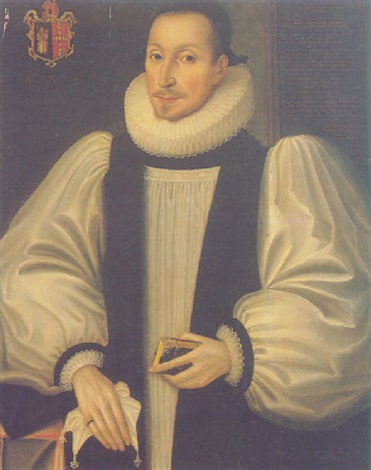Martin Fotherby on:
[Wikipedia]
[Google]
[Amazon]
 Martin Fotherby (c. 1560–1620) was an English clergyman, who became Bishop of Salisbury.
Martin Fotherby (c. 1560–1620) was an English clergyman, who became Bishop of Salisbury.
 Martin Fotherby (c. 1560–1620) was an English clergyman, who became Bishop of Salisbury.
Martin Fotherby (c. 1560–1620) was an English clergyman, who became Bishop of Salisbury.
Life
He was born inGrimsby
Grimsby or Great Grimsby is a port town and the administrative centre of North East Lincolnshire, Lincolnshire, England. Grimsby adjoins the town of Cleethorpes directly to the south-east forming a conurbation. Grimsby is north-east of Linco ...
, and studied at the University of Cambridge
, mottoeng = Literal: From here, light and sacred draughts.
Non literal: From this place, we gain enlightenment and precious knowledge.
, established =
, other_name = The Chancellor, Masters and Schola ...
, where he became a Fellow of Trinity College Trinity College may refer to:
Australia
* Trinity Anglican College, an Anglican coeducational primary and secondary school in , New South Wales
* Trinity Catholic College, Auburn, a coeducational school in the inner-western suburbs of Sydney, New ...
.
He was rector of St Mary-le-Bow
The Church of St Mary-le-Bow is a Church of England parish church in the City of London. Located on Cheapside, one of the city's oldest and most important thoroughfares, the church was founded in 1080 by Lanfranc, Archbishop of Canterbury. Rebui ...
, and then in 1596 a prebendary of Canterbury Cathedral
Canterbury Cathedral in Canterbury, Kent, is one of the oldest and most famous Christian structures in England. It forms part of a World Heritage Site. It is the cathedral of the Archbishop of Canterbury, currently Justin Welby, leader of the ...
. He became Bishop of Salisbury in 1618 and died in London on 11 March 1620 and was buried two days later in All Hallows, Lombard Street.
His brother Charles Fotherby
Charles Fotherby (c. 1549 – 1619) was a Church of England clergyman who became Dean of Canterbury (1615–1619).
Life
Fotherby's date of birth is not recorded but he is stated to have been 70 when he died.
His father was Martin Fotherby of ...
was Archdeacon of Canterbury
The Archdeacon of Canterbury is a senior office-holder in the Diocese of Canterbury (a division of the Church of England Province of Canterbury). Like other archdeacons, he or she is an administrator in the diocese at large (having oversight of ...
(1595–1615) and Dean of Canterbury
The Dean of Canterbury is the head of the Chapter of the Cathedral of Christ Church, Canterbury, England. The current office of Dean originated after the English Reformation, although Deans had also existed before this time; its immediate precur ...
(1615–1619).
Works
His ''Atheomastix; clearing foure truthes, against atheists and infidels'' was published posthumously in 1622, a work written againstatheism
Atheism, in the broadest sense, is an absence of belief in the existence of deities. Less broadly, atheism is a rejection of the belief that any deities exist. In an even narrower sense, atheism is specifically the position that there no d ...
. According to the ''Cambridge History of English and American Literature'', (1907–21), Volume VII, Fotherby "relied chiefly on St. Thomas Aquinas in his demonstration of the being of God, and maintained that there is a "natural prenotion" that there is a God." This work was the source of many of the poetic quotations occurring in '' The Generall Historie of Virginia, New-England, and the Summer Isles'' (1624), by John Smith of Jamestown.Karen Ordahl Kupperman
Karen Ordahl Kupperman (born 23 April 1939) is an American historian who specializes in colonial history in the Atlantic world of the sixteenth and seventeenth centuries.
Biography
Karen Ordahl Kupperman was born in Devils Lake, North Dakota on ...
, ''Indians and English: Facing Off in Early America'' (2000), p. 121.
Notes
Further reading
* Philip L. Barbour, ''Captain John Smith and the Bishop of Sarum.'' Huntington Library Quarterly, 26 (1962), 11-29. . {{DEFAULTSORT:Fotherby, Martin 1560 births Bishops of Salisbury Fellows of Trinity College, Cambridge 1620 deaths People from Grimsby English religious writers 16th-century English writers 16th-century male writers 17th-century English writers 17th-century English male writers 16th-century English Anglican priests 16th-century Church of England bishops 17th-century Church of England bishops